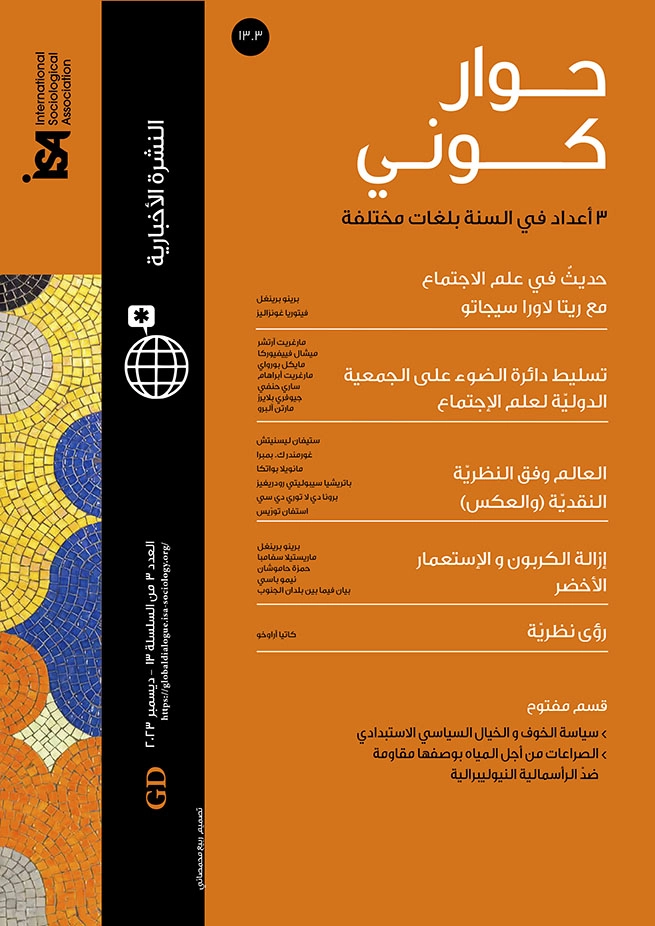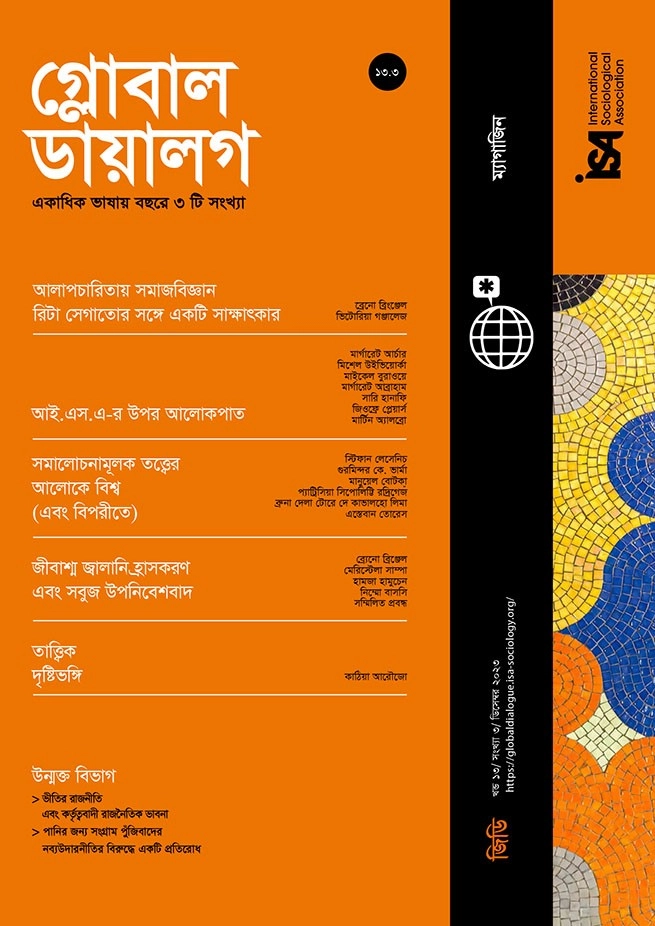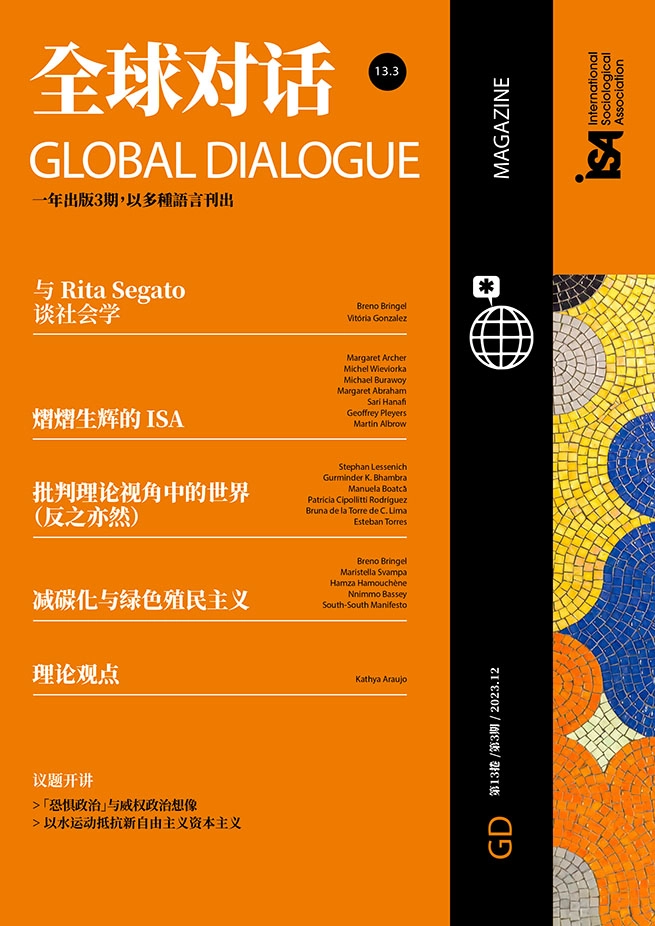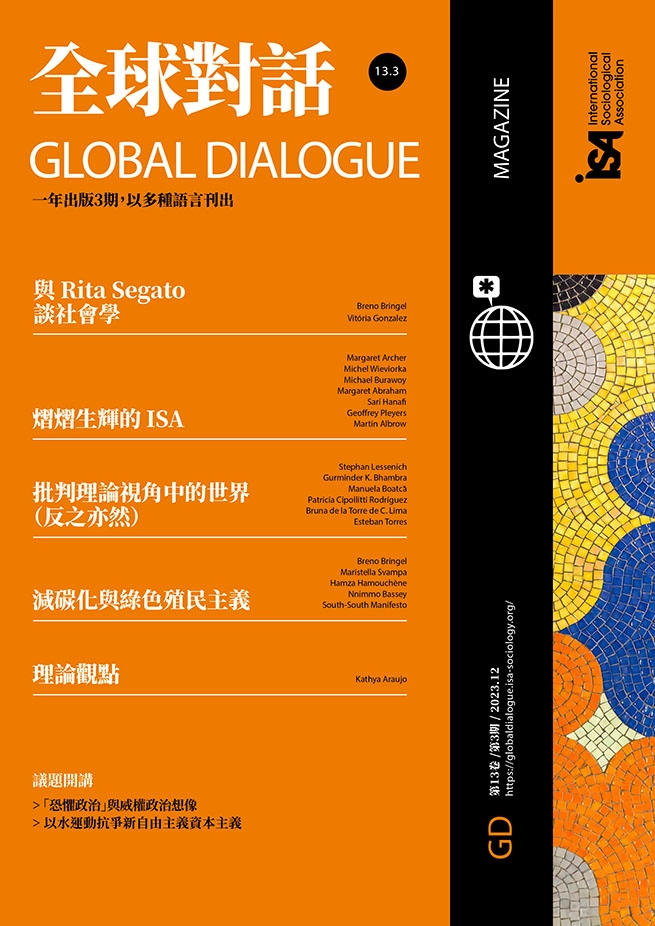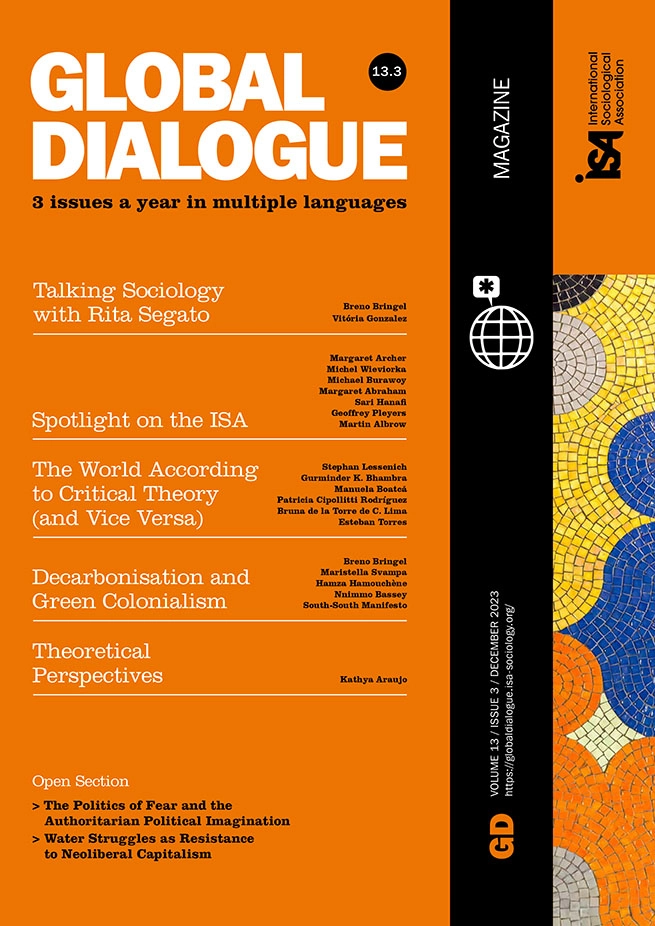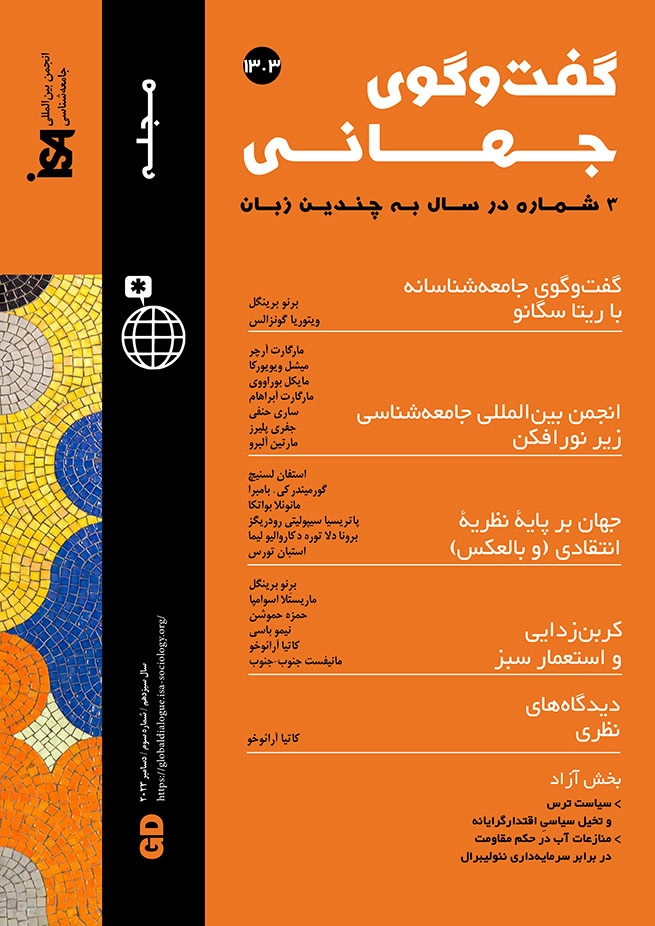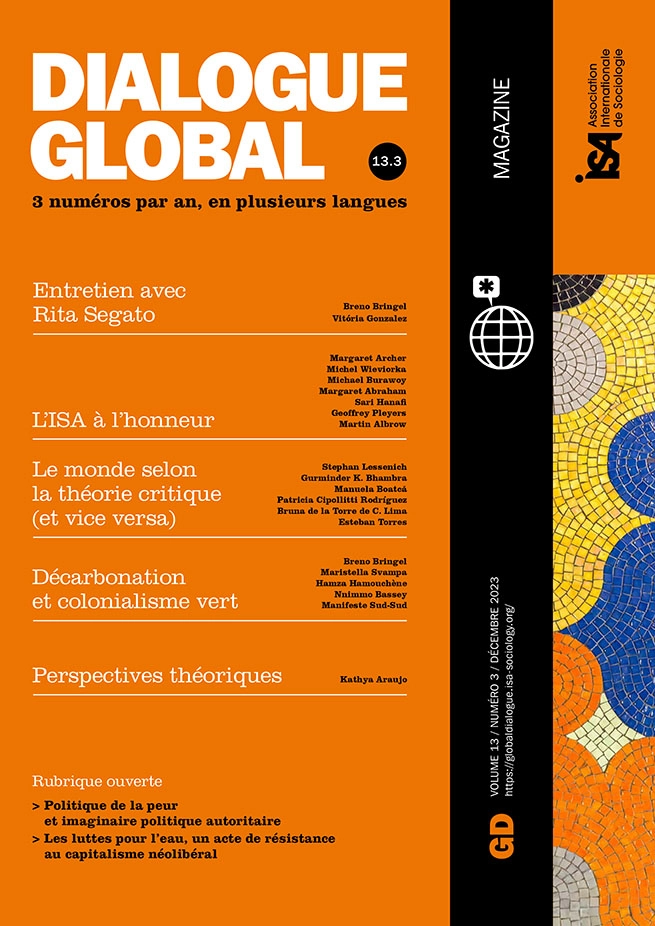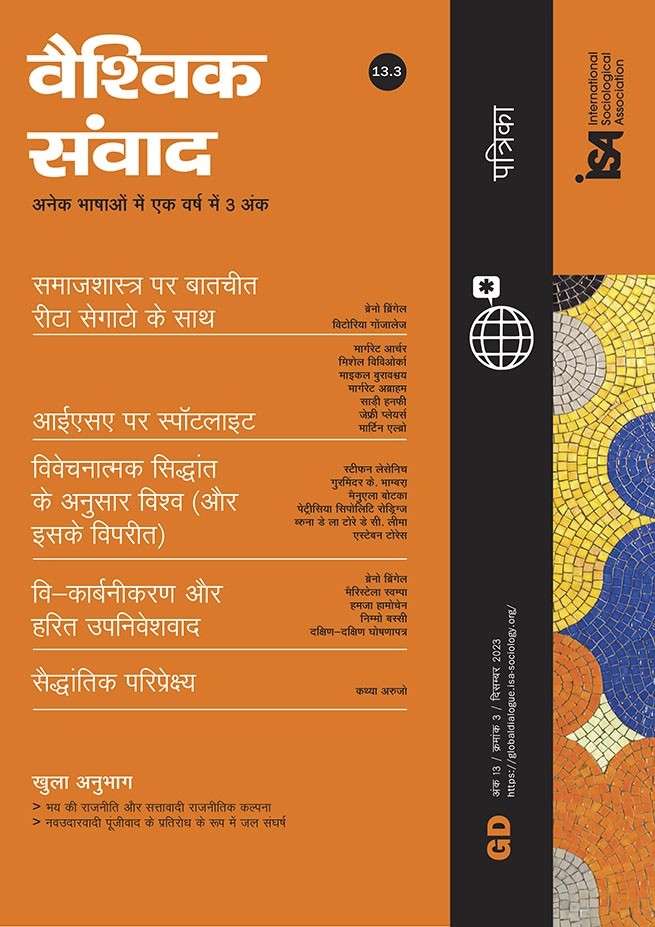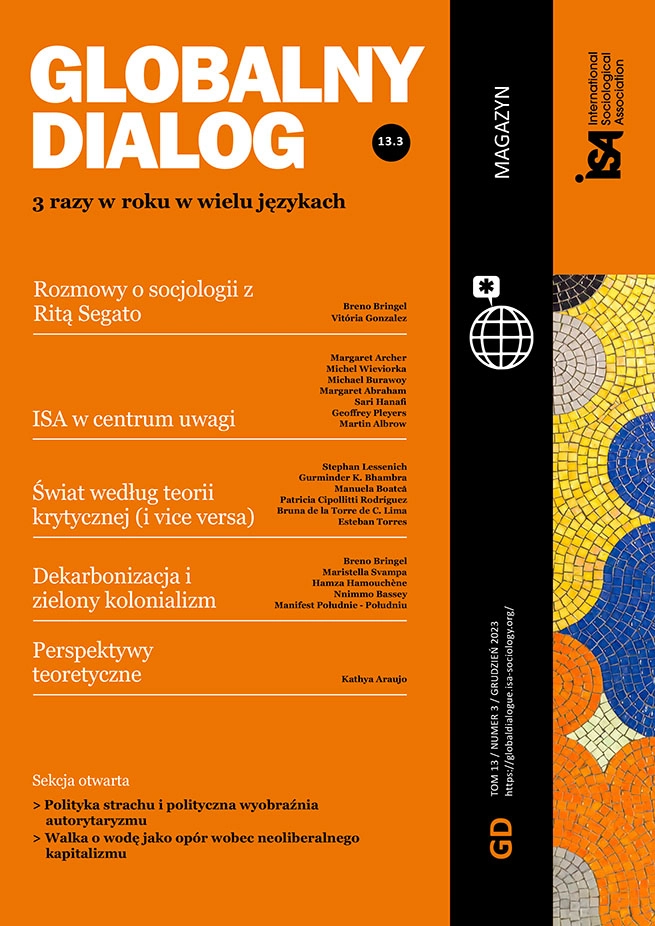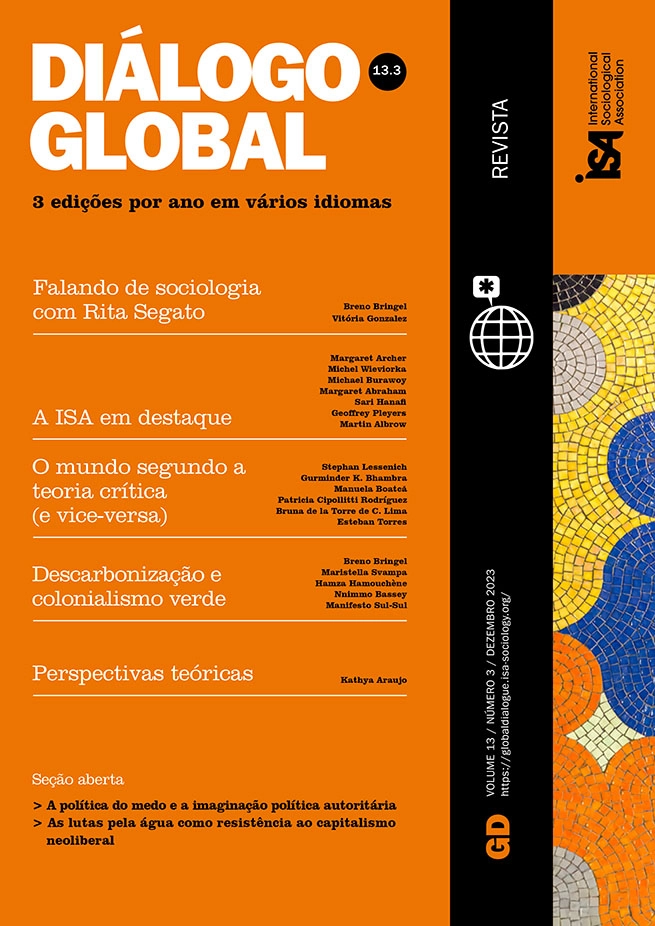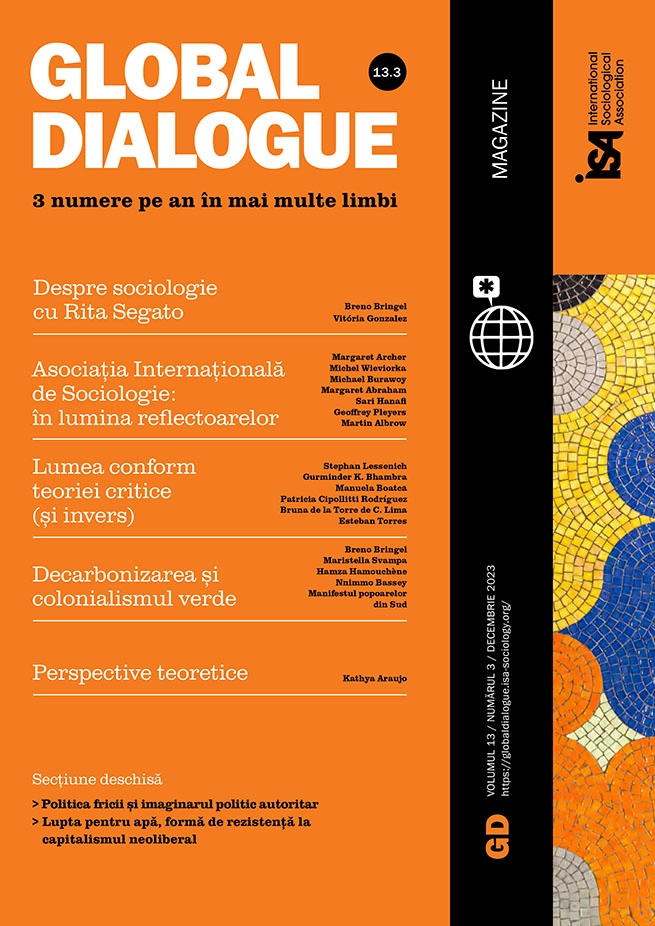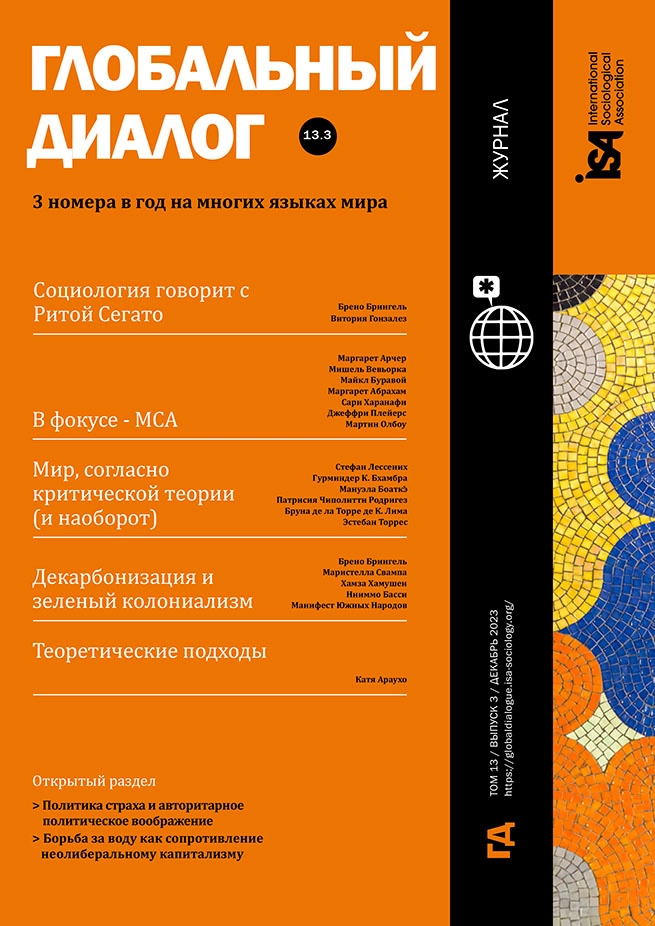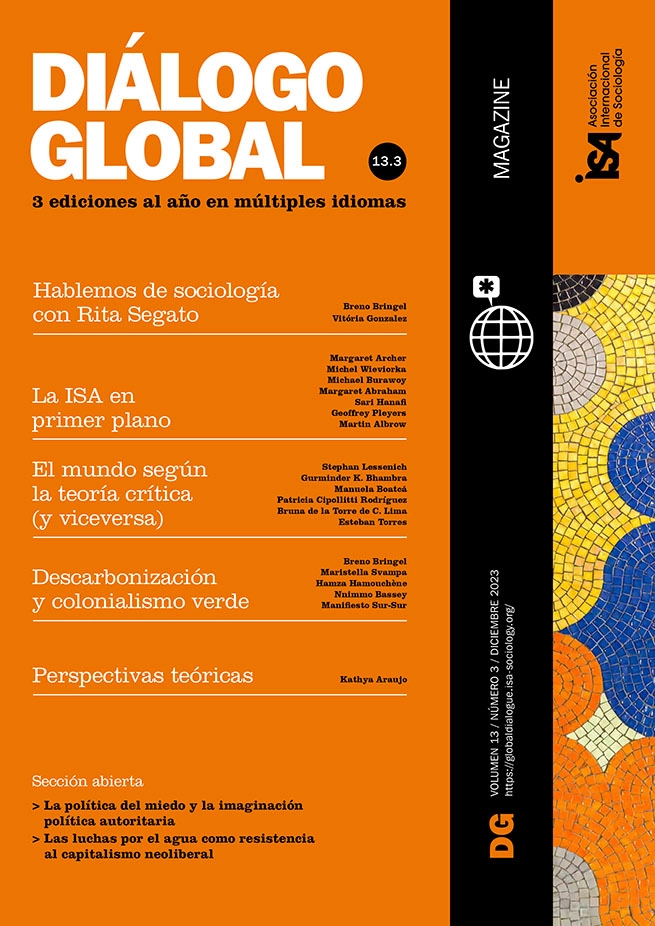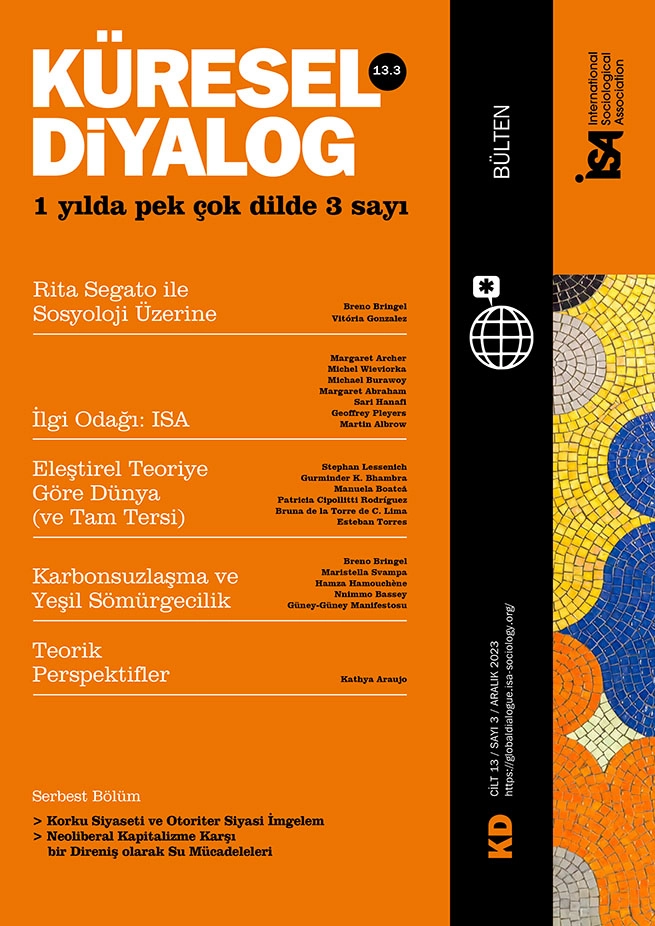In 2004, an international symposium dedicated to “Critical Theory in the Dialogue between Europe and Latin America and the Present Tasks of Critique” took place in Mexico City. Speaking in front of an audience of mostly German and Latin American scholars, Argentinean philosopher Enrique Dussel prefaced his talk, titled “From Critical Theory to the Philosophy of Liberation: Some Themes for Dialogue”, by remarking that he primarily wanted to take seriously “the ‘subjects’ of the dialogue and their locus enuntiationis: who we are and from where we speak”. Not only are such dialogues infrequent and their terms sometimes obscure, Dussel added, but they rarely take place symmetrically.
Instead, the main task of a “critical philosophy with a global validity” for the twenty-first century, which in his view had not yet been constructed, would be to “set out from the perspective of those excluded from the global system (peripheral countries) and those excluded within particular states (impoverished masses)” (Dussel, 2004). This appeal dovetailed well with other contemporary as well as earlier appeals: Latin American dependency theorists’ call for an analysis of development from the perspective of the periphery; the plea of German feminist subsistence theorists, such as Maria Mies, Veronika Bennholdt-Thomsen and Claudia Von Werlhof, to incorporate “views from below”; Third World feminists’ proposal to rewrite the history of slavery and colonialism from “oppositional locations”; and the growing number of “standpoint theories” of race and gender that had foregrounded epistemic claims in the 1980s and 90s.
An unanswered appeal
Today, almost twenty years after Dussel’s plea, subaltern, peripheral, and dissident perspectives, the experience and positionality of the colonial subject, and the role of one’s epistemic location in global knowledge production and circulation are well-established at the heart of postcolonial and decolonial approaches. Together, they amount to a theory that is critical of global power relations. But is that the same as critical theory, or as the Critical Theory of the Frankfurt School? In other words, has the dialogue envisaged in the 2004 symposium occurred?
The short answer is “no”, to all of these questions. A longer answer would have to include, maybe even begin with, Dussel’s claim that, by turning a blind eye to global economic disparities, the second Frankfurt School abandoned “negative critique” and thus “ceased to be truly critical” of both historical reality and the ongoing “negativity of starvation” in the periphery. A critical theory that took as its starting point the standard of living at the core of the capitalist system, Dussel cautioned with explicit reference to Habermas, not only remained Eurocentric, but evinced a “provincial partiality” that is outrageous to those in the periphery. Differences of focus, scope, and degree exist between postcolonial and decolonial approaches too, as do differences between generations within the same approach. The political economy of global capitalism was arguably more important to Latin American decolonial approaches drawing from dependency theory and world-systems analysis in the 2000s than it was to Anglophone postcolonial approaches focused on issues of culture, identity and representation in the 1990s – but that is not necessarily the case today, or not for all authors. Writing in 2008 about the different genealogies of critique of colonial and imperial rule, Venezuelan anthropologist and decolonial scholar Fernando Coronil pointed out that, in the Americas, critique was centered around the political economy of dependency, while in the newly independent states in Africa and Asia, it had crystallized around the sequence of colonialism and postcolonialism. In calling for a dialogue between the two critical traditions, Coronil focused on complementarity rather than differences: “Critical responses to colonialism from different locations take different but complementary forms. While from an Asian perspective it has become necessary to ‘provincialize’ European thought, from a Latin American perspective it has become indispensable to globalize the periphery: to recognize the world-wide formation of what appear to be self-generated modern metropolitan centers and backward peripheries”.
The long-awaited reply
Having the periphery – whether as dependency theory, subaltern studies, or decoloniality – write back to Eurocentric critical theory (in the singular) was one important step. Socioeconomic conditions in the world-system’s peripheries, as well as supposedly non-modern social relations within core areas, were thus revealed to be constitutive of modernity and its underside, coloniality, instead of being banished outside the modern. Chattel slavery and its consequences, racially segregated work forces both in the core and on the periphery, exploitative bourgeoisies and “dual economies” in the Americas, patriarchal gender relations in Africa and the Middle East, and the coexistence of forms of wage and non-wage labor in all colonized areas could no longer serve as proof of the periphery’s alleged backwardness, but of the entanglements constituted through colonial and imperial rule.
For a symmetrical dialogue between critical theories (in the plural) to occur, and for it to continue, we must pluralize the geographic and epistemic locations of critical theory production. Making the colonial and imperial experience central to the analysis of the historical reality and the current materiality of power relations is still the exception rather than the rule in an overwhelmingly uncritical, presentist and Eurocentric social science from which non-Western, non-European, and non-White experiences have long been erased. As a result, until late in the twentieth century there emerged a sociology of inequality and stratification that neglected race and ethnicity in the West; a sociology of capitalist development that downplayed slave economies, indentured labor, and all forms of non-wage work; and a sociology of migration devoid of both colonizers and colonial subjects. Missing from all the accounts was the experience of women, to be only partially and gradually corrected by the inclusion of White Western women as objects and then subjects of sociological production in the West. Worlding the peripheral experience – in Coronil’s words, globalizing the periphery – would render central processes of the capitalist world-economy such as the European colonial expansion, the trade in enslaved people, and European emigration to the Americas as visible as the class conflict, proletarianization, and social mobility of Western European industrial states on the analysis of which sociology was founded.
Manuela Boatcă, University of Freiburg, Germany, and member of ISA Research Committee on Historical Sociology (RC56) <manuela.boatca@soziologie.uni-freiburg.de> / Twitter: @ManuelaBoatca





